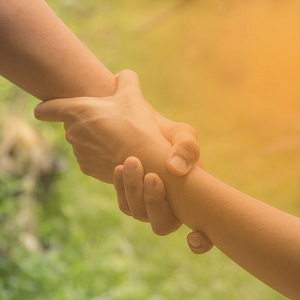Loss and Grief how do we deal with it?
Loss and Grief can look like depression, but it is different. The feelings occur in response to a range of life experiences and varies from person to person. Understand the scope of grief to help you or a loved one cope with their loss.
Loss and grief can be one of life’s biggest challenges for each of us, it is a roller coaster ride with lots of ups and downs, highs and lows. It is not something we are taught how to handle and how to go through. We will all have several losses over our lifetime, it is part of life, but that doesn’t make it any easier. Just like we are all unique each loss we go through can also be incredibly different too for very different reasons, there is no normal or typical when it comes to grief, we can’t compare one lose against another and our reactions will be massively different too.
What is grief and loss?
Grief is the loss you normally feel when you lose something. We normally associate it with the death of a loved one but it doesn’t have to be a person it could also be a change in circumstance and certainty in our life that is altering our direction. This could be seen as part of your identity such as the loss of a job, marriage, miscarriage or baby, friendship, home financial security, status etc.
Grief is a highly individual experience it is a natural emotion that goes with loss and has a life of its own, no one can tell you what to expect or what’s going to happen. Grief can also be different for the different people or situation you lose in your life and your reactions will also be as different just as the relationships were.
The grief I felt when I lost my dad was so incredibly deep, I cried for years when I mentioned his name, yet when my mum died as an old lady 15 years later, I felt relief for her that she didn’t have to suffer anymore and although I cried for weeks after her loss I wasn’t as traumatised as I was as when I lost dad. The relationship I had with both of my parents was very different, I was very close to dad, he was a dear friend, where as mum was a mother to me, someone I always had a wall up against, I was much older and more philosophical which made me look at mum’s death very differently to dad’s too.
When my husband lost his job, he lost his identity, he sat in a chair and watched movies withdrawing within himself, became numb, he didn’t want to talk to anyone, do anything and wasn’t interested in moving forward. He went into mourning for what was, he was stuck, traumatised, his identity was taken from him, he was angry and even abusive to those around him and didn’t come out of it until he got another job again.
There is no right or wrong way to deal with grief and loss, so allow it to be just the way it is for you. There is no time frame for grieving, so give it the time it needs to.
The 7 stages of grief (Elisabeth Kubler-Ross model)
- Shock – Disbelief on hearing the bad news
- Denial – you may not believe this happening to you and deny the reality.
- Anger – pain is excruciating, frustration leads to anger while feeling resentful, “why me?”
- Bargaining – trying to work out how to bargain your way out of the event
- Depression – you might feel so sad you can’t do things or want to do things
- Testing – seeking realistic solutions
- Acceptance – you learn to accept and deal with the reality of the situation
Not everyone goes through these different stages and some stay in one of the stages for the majority of the time, there is no typical way of dealing with loss as loss is as individual as our own lives are.
Loneliness
Loneliness is often the fall out of grief and loss, it can be what makes us stuck in the mourning process and keeps us from moving on. What we often mourn is the friendship another person has given us, the entertainment they have been for us in our lives, so when they are gone and we are left alone, how to deal with loneliness can be the killer because it leaves us with our own thoughts.
What you can do to get through this time.
Feel the emotions, don’t bury them, allow yourself to feel all the emotions, cry, scream or do whatever it is you need to do, but once you are through these feelings don’t sit in them, get out and move on whenever you can. These emotions will return time and time again, just stay with them, feel them and move forward whenever you can. Don’t ignore the pain because burying it will only make it bubble up and resurface rather than dealing with the pain.
Journalling can be a great way to express your emotions and explore how you are feeling. By writing about all the good and being honest about the bad times too can often put the relationship and your loss back into perspective.
People come into your life for a reason, season or a lifetime. Working out why this person was in your life and what lessons they were here to teach you will help you move forward without them. When you are really ready to move on ask yourself what the advantage was for you in their loss occur. This will be a hard discussion initially but as time goes by you will be able to see the advantages or lessons that have occurred because you have lost someone or something.
Celebrate the lessons the person taught or gave to you, be grateful for what you learnt from them and how these lessons have given you the ability to choose to change. Without them you wouldn’t be the person you are today, celebrate that and be grateful.
Ask for help whenever you need it. Don’t be afraid to ask as there are plenty of people out there you can get help from. Join a support group if you think that will help
Be Good to yourself, look after you, put yourself first and take care of you physically. Don’t lock yourself up in a bedroom or the house, get out and breath the fresh air or go to a yoga and meditation class.
Be aware that grieving can be exhausting and can affect your physical health and your emotional health. Make sure you get enough sleep and rest. Watch your diet and make sure you eat a sensible balanced diet, starving yourself by refusing to eat and living on coffee may be great for the waistline but not the body, or grabbing and binging on junk food like lollies and chocolate won’t give you the energy you are trying to get either. Exercise will make you feel better if you can or walking and move your body will help.
Don’t isolate yourself, seek out close friends and family and talk openly to them. Good friends and close family will always be there to listen to you, they will support you and encourage you to move forward when you are ready. Tell them what you need help with, they won’t know what to do unless you tell them, they will enjoy helping you and feeling useful too because they care about you.
Search out a good therapist or grief councillor that you can talk to, or join a grief support group that meets, so you can share your sorrow, experience and what you are going through so you might get some suggestions to work through the triggers and obstacles that you are facing.
Find a hobby and do things you love doing when you need to change your thoughts or just need still time. Changing your focus from the pity-pit to doing something you love will help you mentally, so go and play that game of golf, go for a walk or start a new painting, bake a loaf of bread or take up knitting if that helps you cope with life more and change your focus from your loss.
How to help others experiencing grief and loss
Being a friend and watching your loved one go through emotional pain can be hard because you feel you can do very little to help, but in reality just being there, being an ear to listen and having patience with them is all you need to do.
Ring them when you are going to the supermarket, to ask them what they might want. Take them out when they are ready to go out, taking them for a coffee will make a massive difference to their demeanour. Encourage them to try new things, new hobbies, join new groups and move forward at the pace they are prepared for.
Unfortunately it can be at times when you need your friends the most that you learn who your real friends are. Often people have no idea what to say when people are in pain, so they stay away and don’t have anything to do with them because they don’t know what to say. Or they keep in-touch while the drama is happening but once it is all passed they disappear because they believe you will be all right now, which can often be further from the truth. Your real friends will be there for you all through the drama and after the excitement has finished, they will pick you up when you fall down and be there for you, so reach out to them.
Although grief and loss appear to look like depression and can have similar symptoms it is quite different in that it can have times of respite when you can think you are over it and feel good. While depression is more persistent and the feelings of emptiness and despair is constant, grief does have fleeting periods of time when you can feel ok and think you are over the darkness, but then it comes back again hitting you hard. Loneliness that accompanies grief and loss also needs special attention. It is really important that you know that time will heal the hurt and it does take patience.
If you need help please seek professional help, don’t try to do it on your own.









0 Comments